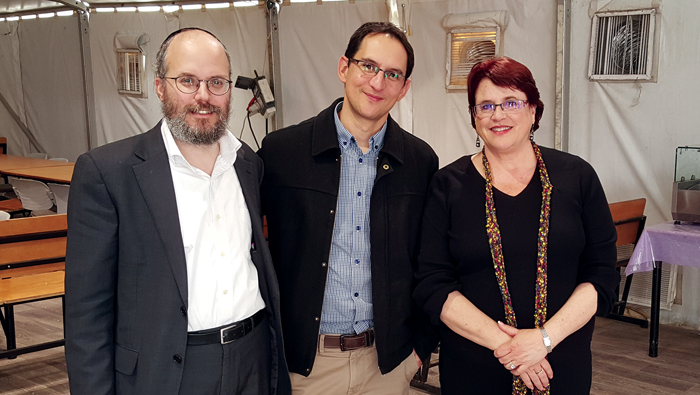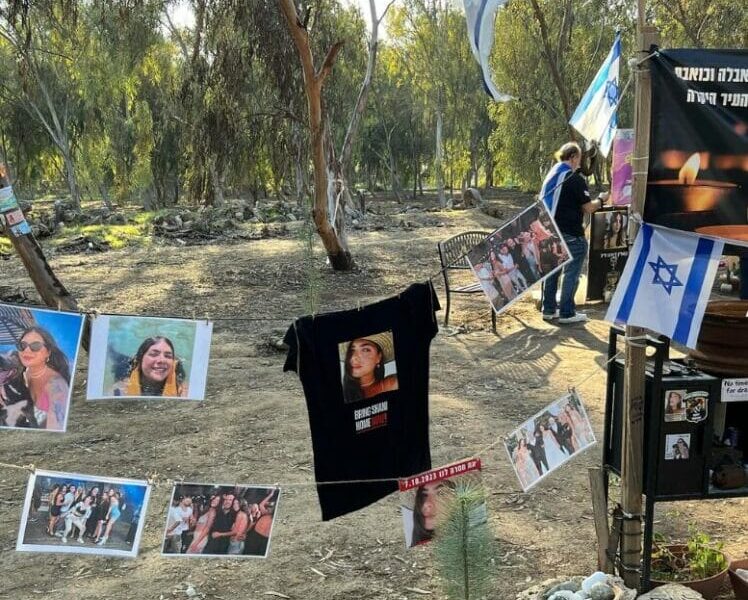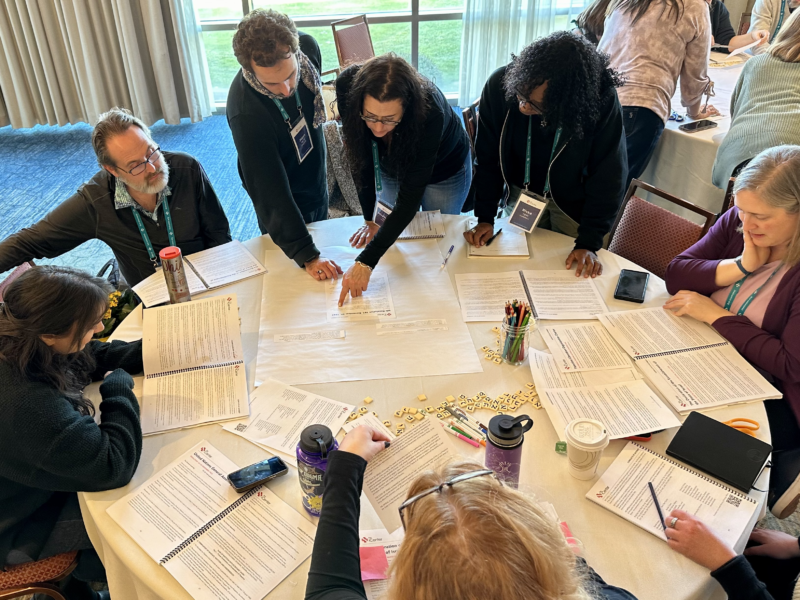By Tracy Salkowitz
Taking a trip to Israel as CEO of the Jewish Community Foundation of Southern Arizona is both challenging and invigorating. My most recent visit, organized by the Weintraub Israel Center earlier this year, was fabulous. I traveled with 43 other Tucsonans on the WIC’s first Israel Experience – Boarding Pass Trip to Israel, and our shared experiences created lifelong bonds.
In our 10 days together, highlights included everything from Tel Aviv to the Golan, waking up to the beautiful views of the Sea of Galilee. From there we traveled to Jerusalem, where we welcomed Shabbat at the Western Wall, and then on to Kiryat Malachi for a community celebration and home hospitality with residents of our Partnership2Gether region. The Israel Center mission ended at Moshav Netiv HaAsara, where we affixed ceramic pieces to the Path to Peace mosaic wall on the border with Gaza. I was thrilled that JCF was able to provide support for the trip.
Before, during and after the mission, I had side meetings with current and prospective grant beneficiaries. Whenever I visit Israel, the challenge is catching up on evolving trends and needs while in the middle of experiencing the country. The difference between this trip and my last visit was palpable. Two years ago, I sensed that the most pressing issues in Israel were the economy and the role of haredi (ultra-Orthodox) Jews in Israeli society. It wasn’t that peace in the Middle East wasn’t on everyone’s radar; it felt like regional tension had become the status quo and people just made sure they were prepared for possible eventualities.
This trip was different. Although the economy and the role of haredim in society are still high priorities, tensions among the Israeli/Palestinian/Arab communities are at an all time high. Terror attacks have taken their toll and part of the after effects can be sensed in how each community reacts. Those who have friends or colleagues in other communities, who have been building bridges, have taken those friendships behind closed doors. Many organizations doing shared-society work have ceased to exist.
Despite the difficulties, some individuals and organizations continue with their efforts. Hand in Hand is a chain of schools that have equal numbers of Israeli and Arab students. Parents must agree to participate fully before their children are accepted into the program. Hand in Hand is opening its fifth campus.
Jews and Arabs who live in the “mixed” Jerusalem neighborhood of Abu Tor are engaged in community development. Music and sports groups in Abu Tor are working to make a difference.
My admiration for those on the front lines knows no bounds.
Another one of my heroes is Rabbi Bezalel Cohen of Hachmey Lev. Several years ago, he became increasingly concerned about the rising poverty rate amongst haredim. He made the decision that he did not want his children to grow up or live their lives without the means to care for their families. There are some 350 haredi yeshivas in Israel. Of these, there were no mainstream haredi yeshivas teaching core curriculum (computers, science, math and English. Without core studies, these young men have no hope of getting into college and will need to rely on their wives to support the family, which becomes increasingly difficult with an ever-growing number of children.
I do not mean to offend those who have chosen a lifetime of Torah study. I certainly want Judaism to thrive and we need learned scholars. Not everyone is cut out for that life, however, and there are those who would choose a different path. Hachmey Lev helps haredi teenage boys pursue matriculation certification without compromising their ultraorthodox lifestyle. It is in its second year and already has a waiting list. At the same time, Rabbi Cohen has been under incredible pressure from his community and he, his wife and children have lost friends.
I met with staff members from the Taub Center for Social Policy Studies in Israel who have been doing extraordinary research in this area. Of course, JCF wants choices for Israeli youth, but that is only part of our reason for funding Hachmey Lev. In the next 30-40 years, approximately 50 percent of the adult workforce will be under-educated haredim and Arabs. This has tremendous implications for Israel’s society and economy. To us, this is one of the most critical issues facing Israel’s future and JCF is the very first Jewish community foundation to provide critical support in this area.
We like to say that Tucson is small but mighty. By being very strategic with our dollars, we make an impact. This is probably no more keenly felt than in Tucson’s Partnership2Gether region of Kiryat Malachi and Hof Ashkelon.
Once again, our foundation is the first independent Jewish foundation to become a full member of the Partnership2Gether program, enabling a greater investment in our relationships with beneficiary organizations and more in depth on-the-ground research of prospective grantees. The cross-training that is possible opens many new doors on both sides of the Atlantic.
We are little Tucson, not New York; who are we to be suggesting anything? Well, one of the surprising consequences of our continued partnership with Kiryat Milachi and Hof Ashkelon is that we’ve put Tucson on the map when it comes to supporting organizations in Israel. We are being looked to for strategic thinking, initiatives and partnerships, which create even more opportunities for building and collective impact. Israel is our homeland. We not only need to do whatever we can, but we have a responsibility to do so. After all, you never know where the next brilliant idea is going to come from. Why not from Tucson?
Tracy Salkowitz is CEO of the Jewish Community
Foundation of Southern Arizona.






